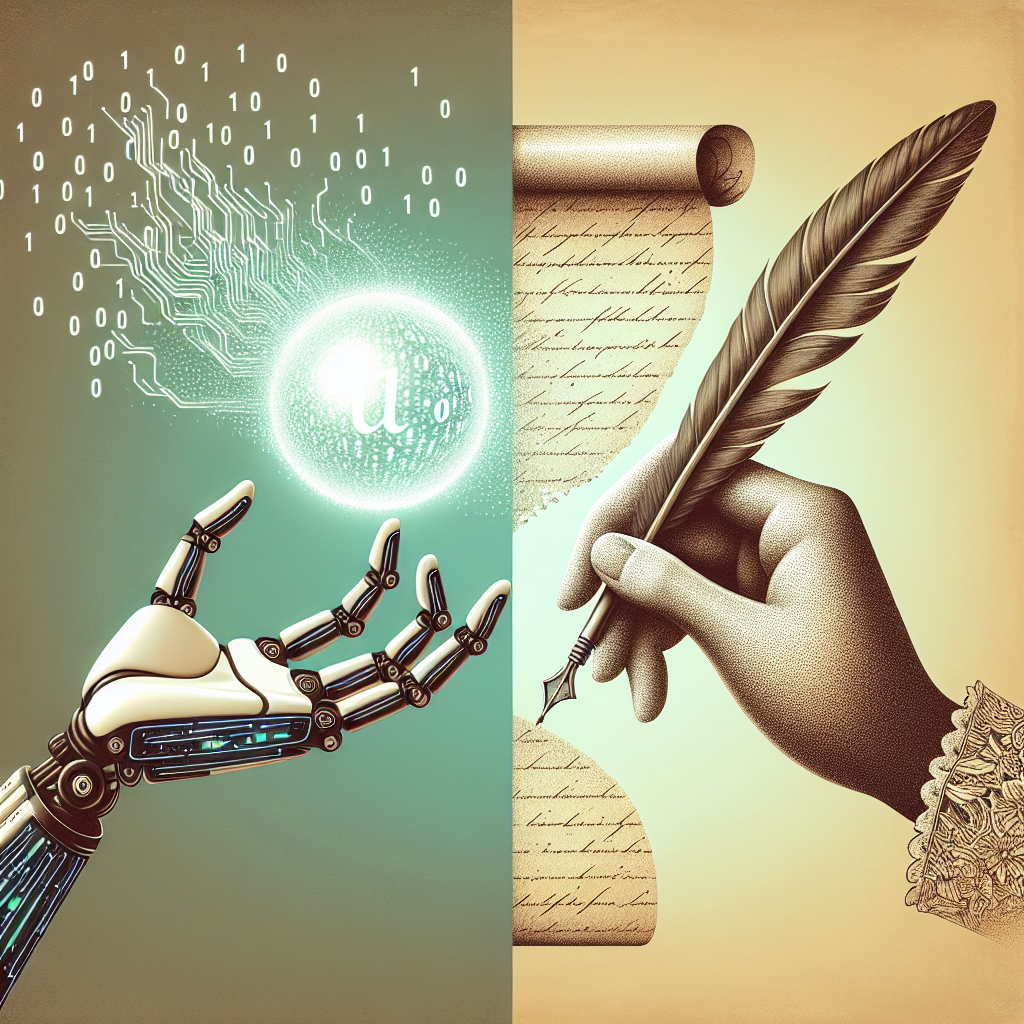Artificial Intelligence (AI) has seen rapid advancements in recent years, with applications ranging from autonomous vehicles to medical diagnosis. One area where AI is making significant strides is in creative writing. The question of whether algorithms can be poets has sparked debate among writers, technologists, and the general public. In this article, we will explore the intersection of AI and creative writing, examining the capabilities of AI in generating poetry and prose, as well as the implications for the future of literature.
AI and Creative Writing: Can Algorithms Be Poets?
AI has made significant progress in the field of creative writing, with algorithms now capable of generating poetry, short stories, and even novels. The development of AI writers has been driven by the increasing sophistication of natural language processing (NLP) algorithms, which enable machines to understand and generate human language.
One of the most well-known examples of AI in creative writing is OpenAI’s GPT-3 (Generative Pre-trained Transformer 3), a language model capable of producing coherent and contextually relevant text. GPT-3 has been used to generate poetry, short stories, and even dialogue in video games. While the quality of the writing produced by GPT-3 is not yet on par with that of a human writer, it is impressive nonetheless.
In addition to GPT-3, there are several other AI systems that have been developed specifically for creative writing. These systems use machine learning algorithms to analyze vast amounts of text data and generate new writing based on patterns and structures found in the data. Some of these systems are capable of mimicking the style and tone of specific authors, while others can create entirely original work.
The use of AI in creative writing has raised questions about the nature of creativity and the role of the human writer. Can algorithms truly be poets, or are they simply mimicking human creativity? While AI systems can produce impressive writing, they lack the emotional depth and nuance that human writers bring to their work. AI-generated writing may be technically proficient, but it often lacks the soul and passion that make great literature resonate with readers.
Despite these limitations, AI has the potential to revolutionize the field of creative writing. AI systems can generate writing at a much faster pace than human writers, allowing for the rapid creation of content for a variety of purposes. AI can also be used to assist human writers in the writing process, providing suggestions for plot twists, character development, and dialogue.
The implications of AI in creative writing are vast and far-reaching. As AI systems become more sophisticated, they may eventually be able to produce writing that is indistinguishable from that of a human writer. This raises questions about the future of literature and the role of the human writer in a world dominated by AI-generated content.
FAQs
Q: Can AI truly be creative in its writing?
A: While AI can generate impressive writing, it lacks the emotional depth and nuance that human writers bring to their work. AI-generated writing may be technically proficient, but it often lacks the soul and passion that make great literature resonate with readers.
Q: How can AI be used to assist human writers in the writing process?
A: AI can provide suggestions for plot twists, character development, and dialogue, helping human writers to overcome writer’s block and generate new ideas. AI can also analyze a writer’s work and provide feedback on areas for improvement.
Q: What are the ethical implications of AI in creative writing?
A: The use of AI in creative writing raises questions about authorship, plagiarism, and the nature of creativity. As AI systems become more sophisticated, it may become difficult to determine whether a piece of writing was generated by a human writer or an AI algorithm.
Q: Will AI replace human writers in the future?
A: While AI has the potential to revolutionize the field of creative writing, it is unlikely to replace human writers entirely. AI-generated writing may be technically proficient, but it lacks the emotional depth and nuance that human writers bring to their work. Human writers will continue to play a vital role in the creation of literature, even as AI becomes more prevalent in the writing process.
In conclusion, AI has the potential to revolutionize the field of creative writing, with algorithms now capable of generating poetry, short stories, and even novels. While AI-generated writing may lack the emotional depth and nuance of human writing, it is still impressive in its own right. The use of AI in creative writing raises questions about the nature of creativity and the role of the human writer in a world dominated by AI-generated content. As AI systems become more sophisticated, the line between human and machine writing may become increasingly blurred, leading to a new era of literature where algorithms are poets.

